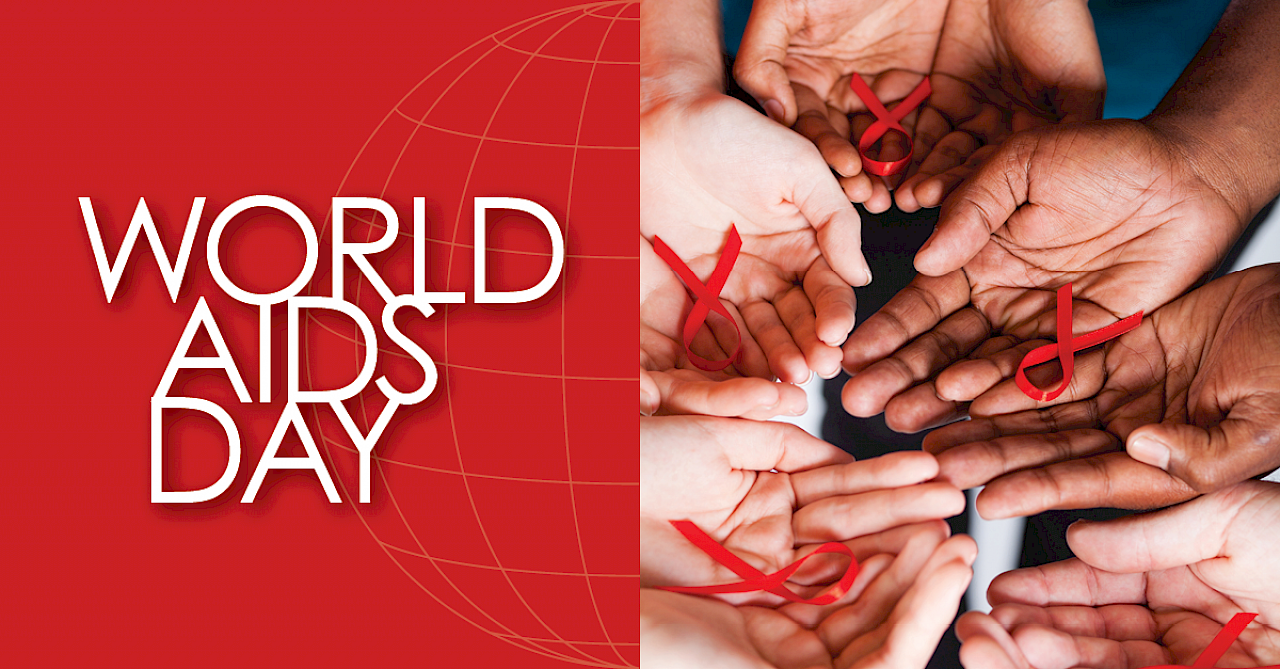December 2017
December 1 was World AIDS Day. Unless you or someone you know is living with HIV, you probably don’t think about AIDS much. It isn’t in the news like it once was. It doesn’t come up in casual conversation. It’s as though the virus is no longer a threat to people’s health. But don’t be fooled; it still is.
EVERYONE SHOULD GET TESTED AT LEAST ONCE
Every person who is sexually active should be tested for HIV at least once in their lifetime. Those with risk factors like multiple sex partners, injection drug use, or men who have sex with men should get tested more frequently. Persons at high risk should consider pre-exposure prophylaxis (PrEP), a daily antiviral pill that can greatly reduce the risk of infection. When the virus is identified early, people with HIV can now live long, healthy and productive lives. Left untreated, HIV can be as deadly as ever.
If you’ve never been tested, I recommend you ask your regular medical provider for an HIV test. However, if you prefer, you can receive anonymous testing at Mendocino County AIDS/Viral Hepatitis Network (MCAVHN). Call (707) 462-1932 or visit newmcavhn.org for details. You can also receive anonymous testing at Community Care HIV/AIDS Program (CCHAP) in Ukiah and Lower Lake. In Ukiah, call (707) 462-3041. In Lower Lake, call (707) 995-1606. Learn more at communitycare707.com/cchap.html. At MCHC Health Centers, we provide HIV testing and treatment, as well as emotional support for those living with HIV/AIDS.
We are currently treating more than 200 patients for HIV/AIDS in Lake and Mendocino Counties, and most have no HIV/AIDS-related symptoms, nor are they likely to spread HIV to others because their viral loads are so low. HIV is a manageable chronic health condition thanks to antiretroviral therapy that can now pinpoint and interrupt specific parts of the virus’ replication cycle.
The key to effective HIV treatment is, of course, knowing whether someone has the virus. All too often people will be diagnosed with HIV only after they have progressed to full blown AIDS.
SHARE INFORMATION WITH YOUR DOCTOR
Your medical providers can help you get the best care possible as long as you have an open and honest dialog with them, including sharing details you may find difficult or embarrassing. Medical professionals are trained to talk to patients in a non-judgmental way about all aspects of health and personal safety, whether it’s sexual practices, guns in the home, domestic violence, substance use, gambling, or the more traditional symptoms of physical or emotional discomfort. If you want your health providers to recommend optimum treatments, they need all the relevant details. Your personal health information is private, and they keep it that way.
AGING AND AIDS
For those who have lived with HIV for decades, new challenges are emerging. Many long-term HIV survivors who are currently in their 50s and 60s experienced emotional trauma in the 1980s and ‘90s when they could do nothing but watch as their friends and partners die slow, painful deaths. Initially, there was no treatment for AIDS; then, there were treatments with harsh, damaging side effects. Long-term survivors are now seeing their friends and partners age, sometimes more quickly, and some are dying earlier than expected. Watching loved ones die can reignite old trauma.
If you or someone you care about is dealing with this, consider watching and/or recommending the award-winning San Francisco Chronicle documentary, “Last Men Standing” (https://projects.sfchronicle.com/2016/living-with-aids/documentary/). Long-term survivors will have unique physical and emotional difficulties as they age, and seeking support may be an important step to living the healthiest, most joyful lives possible.
Stephan Ouellette is a licensed clinical social worker in the HIV Care Department at MCHC Health Centers—a local, non-profit, federally qualified health center offering medical, dental and behavioral health care to people in Lake and Mendocino Counties.

 MyChart Login
MyChart Login

